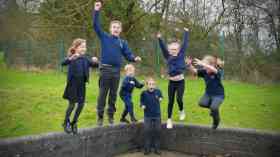In November 2020 I was told I had 6 months left to live and was at risk of sudden death, due to a colloid cyst in my brain.
Supplier Focus
Latest Supplier News
Borg & Overström is a UK manufacturer of premium drinking water solutions. For over 20 years Borg & Overström has developed sustainable, bottle-less, hygienic, drinking water dispensers with the aim to provide exceptional, safe, self-service drinking water into schools, universities, workplaces and communal spaces.

 Music can say a lot about a school and an increasing number of schools benefit from the transformational power that music brings. A child’s education that embraces music starts in train a life-long journey that for many never leaves them. This gift of music is part of the DNA of whole life development and is a cultural anchor for young people. Aside from the individual benefit to children and young people there is a new inspection framework which requires schools to develop deep professional effectiveness resulting in further improvements in pupil learning.
Music can say a lot about a school and an increasing number of schools benefit from the transformational power that music brings. A child’s education that embraces music starts in train a life-long journey that for many never leaves them. This gift of music is part of the DNA of whole life development and is a cultural anchor for young people. Aside from the individual benefit to children and young people there is a new inspection framework which requires schools to develop deep professional effectiveness resulting in further improvements in pupil learning.








